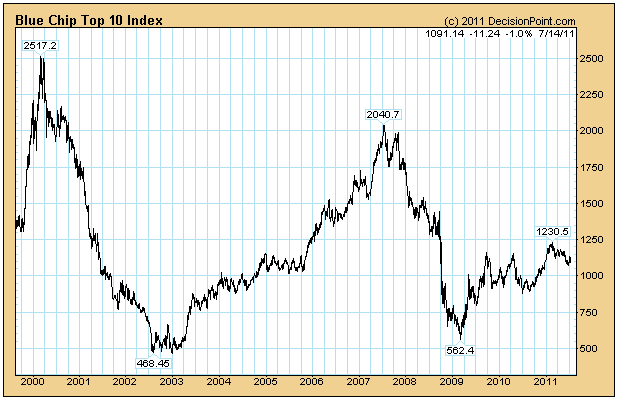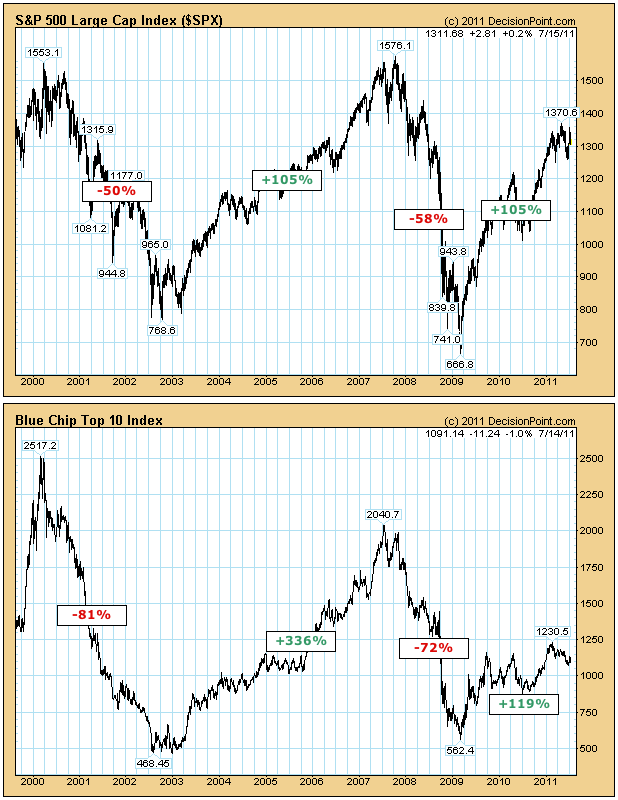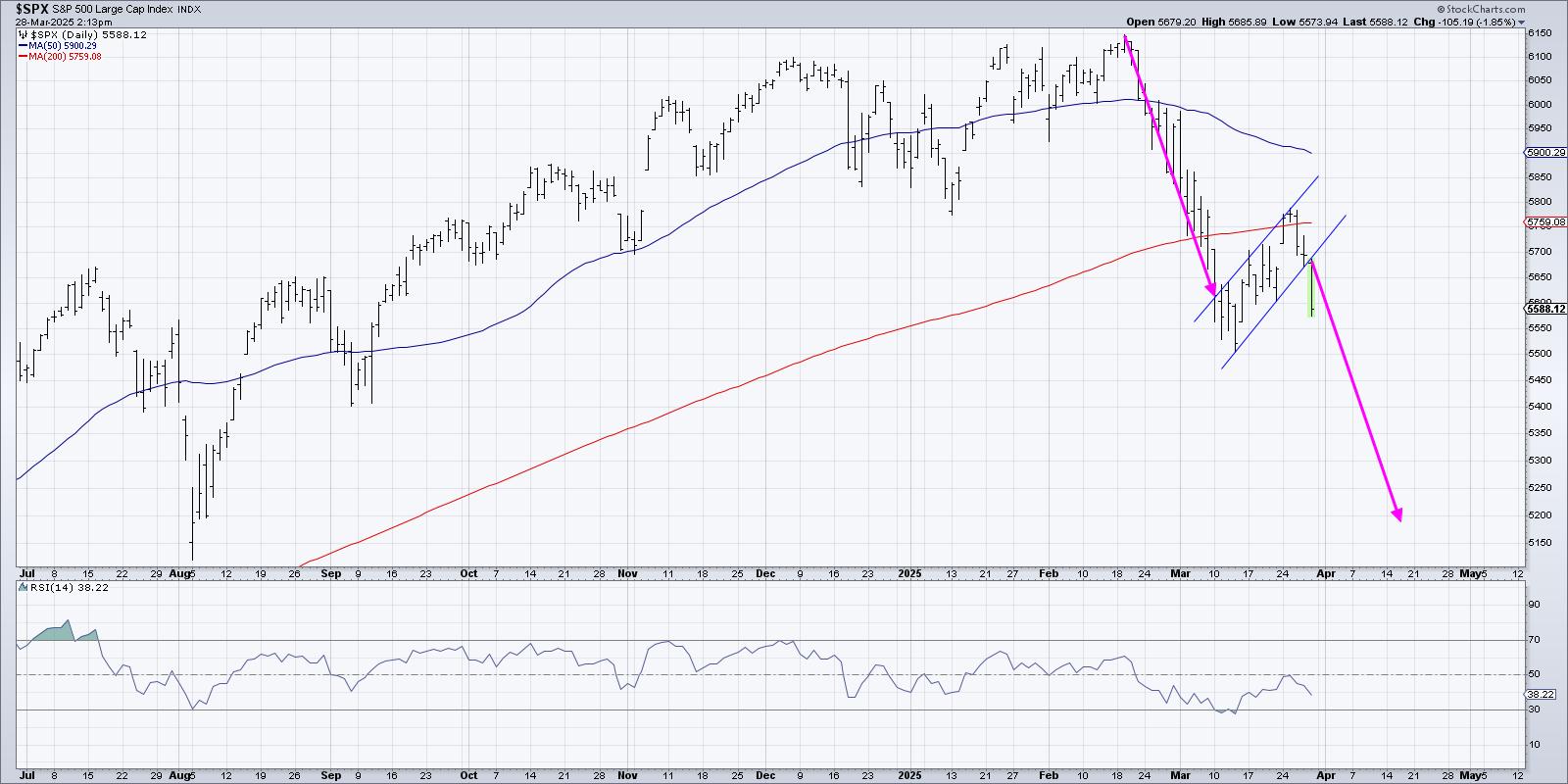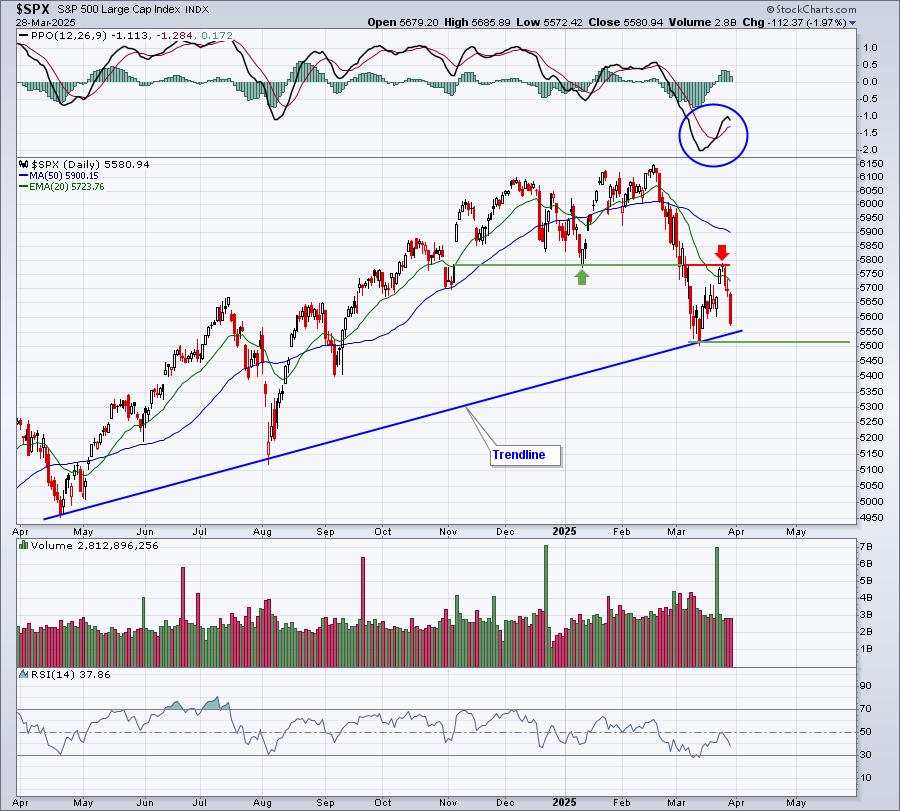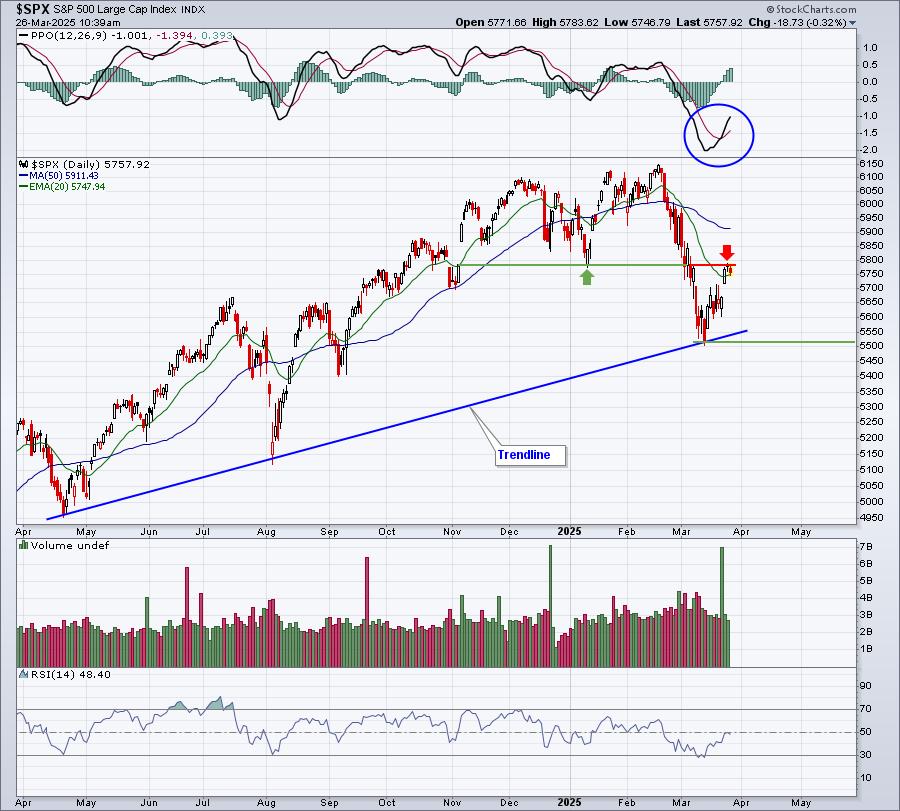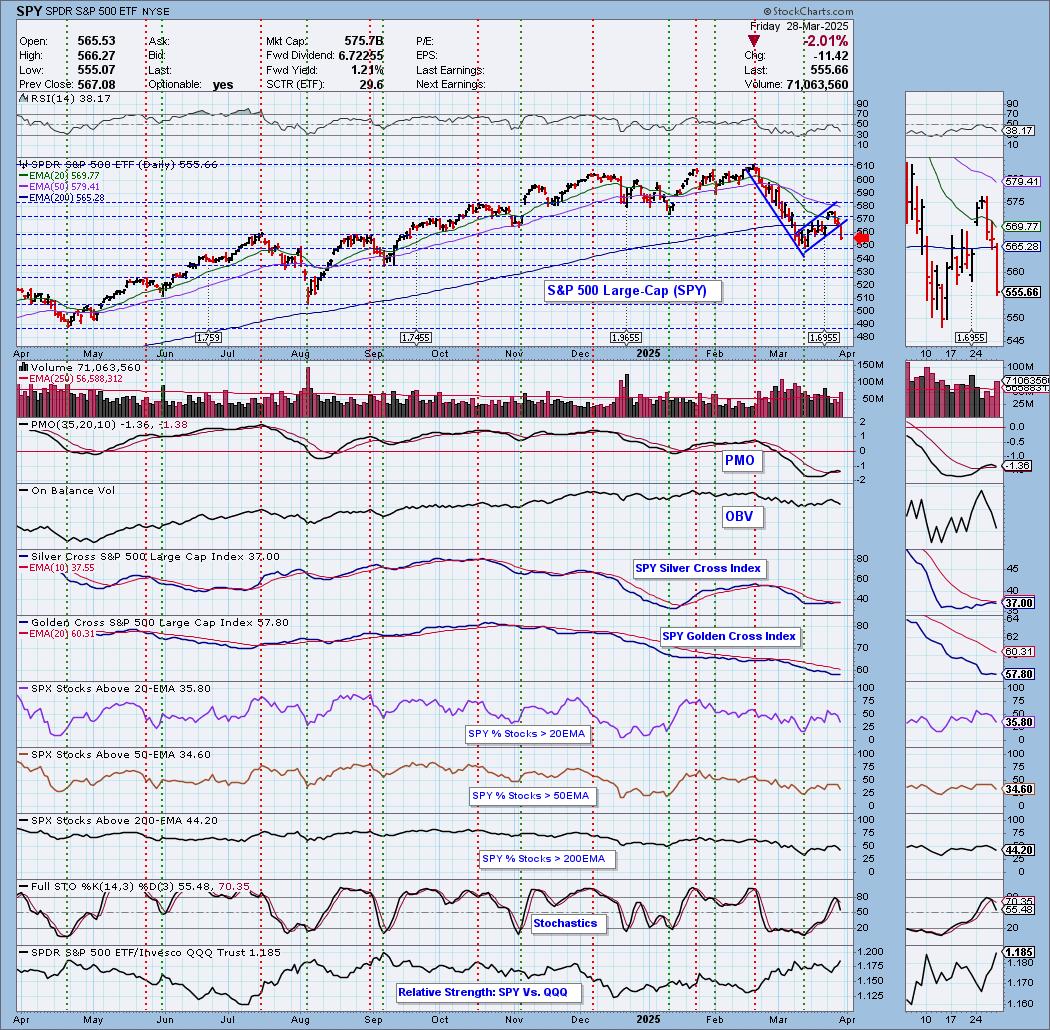While this bull market has rallied +105% from the 2009 low (basis the S&P 500), I have had a sense that there was something "squishy" about it. One thing was the absence of convincing volume, something analysts have been complaining about since the bull market began. Recently, when looking at our Blue Chip 152 Top 10 Index, I found some surprising evidence of just how dysfunctional this bull has been.
The Blue Chip 152 is a list of stocks that includes the stocks in the S&P 100, the Dow 65, and some Nasdaq favorites. Some years ago I got the idea to track the top 10 relative strength stocks, believing that this would provide a a short list of stocks that would always be upside winners. Boy was I wrong about that. Just look at the chart.
While the Top 10 have tended to perform better than the SPX in bull markets, they perform far worse during bear markets. The reason is simple. Market leaders tend to retain their leadership in bull markets -- once a stock rotates into the Top 10, it will stay there quite a while until it is forced out by a stronger stock, which in turn persists in its leadership position.
In bear markets the story is very different because the majority of stocks are are in decline. Stocks with high relative strength are just not declining as fast as other stocks. As a stock enters the Top 10, it is likely that it is peaking, rather than being in the middle of a strong up move, so the Top 10 stocks as a group are more likely to be moving into accelerated down moves.
Here are some charts of the Top 10 and the S&P 500 which allow us to compare bull market gains and bear market losses. Note that during the 2002-2007 bull market the SPX gained +105% versus +336% for the Top 10. Now compare that with with current bull market gains of +105% for the SPX (already equal to the last bull market) and +119% for the Top 10 (way behind its performance during the last bull market). While the Top 10 is ahead, it is really lagging its normal performance. The reason for this is that there is faster rotation in and out of the Top 10, which is caused by weaker than normal performance of the leaders.
Bottom Line: If your impression of this bull market has been that it doesn't "feel right", your impression is not without basis. The Blue Chip Top 10 Index shows us that the leadership has been weak and lacking in persistence compared to the previous bull market.

